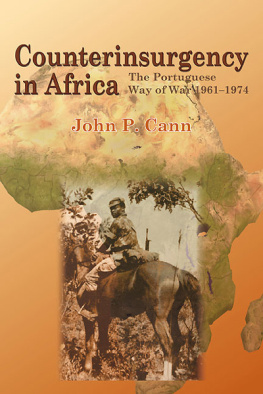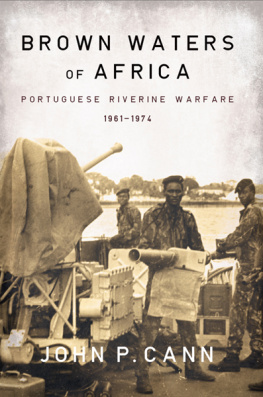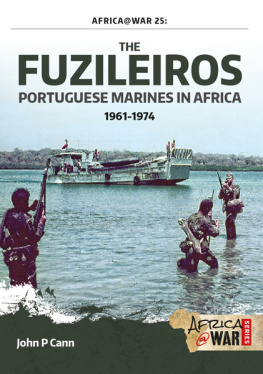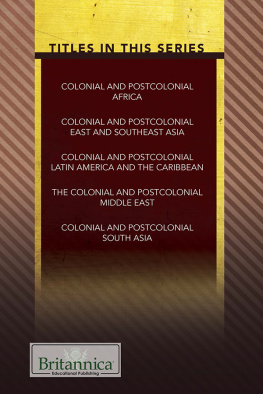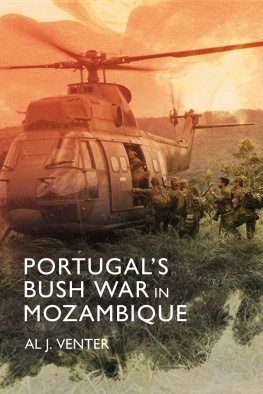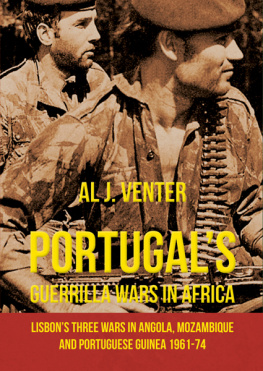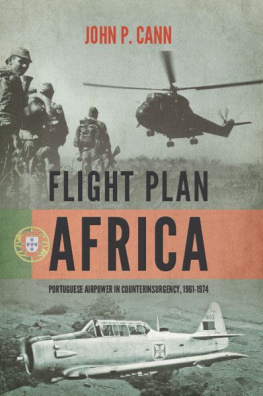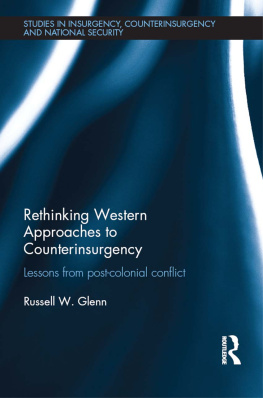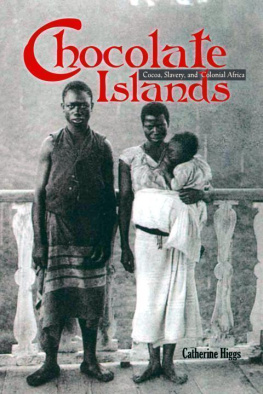About the author
John P. Cann is an adjunct research staff member at the Institute for Defense Analyses, a Scholar-in-Residence at the University of Virginia, and a retired professor at the Marine Corps University. He earned his doctorate in War Studies at Kings College London in 1996, published Counterinsurgency in Africa in 1997, Memories of Portugals African Wars, 19611975 (ed.) in 1998, The Brown Waters of Africa in 2008, and numerous articles on small wars over the years. He is a retired naval captain and flight officer specializing in open ocean reconnaissance aviation and served in a variety of aviation assignments, including command. He has been awarded the Portuguese Navy Cross Medal and the Medal of Dom Afonso Henriques for his writings on conflict in Lusophone Africa.

Helion & Company Limited
26 Willow Road
Solihull
West Midlands
B91 1UE
England
Tel. 0121 705 3393
Fax 0121 711 4075
Email:
Website: www.helion.co.uk
Published by Helion & Company 2012
Originally published by Greenwood Press, 1997
Designed and typeset by Farr out Publications, Wokingham, Berkshire
Cover Design by Farr out Publications, Wokingham, Berkshire
Printed by Lightning Source, Milton Keynes, Buckinghamshire
Text and maps John P. Cann 1997
Photographs as indicated in the list of illustrations
Front Cover: Two dragoons embark on patrol in eastern Angola, November 1971
(CCLH Archives)
Rear cover image: A convoy on the road between Cati and Bedanda during Operation
Rolo (Steam Roller) in March 1965 (PAAHM)
ISBN 978-1-907677-73-1
EPUB ISBN: 9781909384309
British Library Cataloguing-in-Publication Data
A catalogue record for this book is available from the British Library
All rights reserved. No part of this publication may be reproduced, stored in a
retrieval system,or transmitted, in any form, or by any means, electronic, mechanical,
photocopying, recording or otherwise, without the express written consent of Helion &
Company Limited.
For details of other military history titles published by Helion & Company Limited
contact the above address, or visit our website: http://www.helion.co.uk
We always welcome receiving book proposals from prospective authors working in
military history.
For my uncle
LANGBOURNE M. WILLIAMS
Contents
List of Illustrations
List of Maps
List of Tables
Foreword
T he archetypal small war is more relevant than ever today. Although superpower confrontation and its proxy wars of national liberation are quiescent at the moment, ethnic, religious, political, and economic rivalries remain on every continent. In sub-Saharan Africa particularly, where animosities have been a fact of life throughout recorded history, armed conflict driven by ancient antagonisms and modern political ambitions has again become symptomatic. These struggles largely follow the Maoist prescription of protracted war, always a difficult and insidious threat for any incumbent government to fight and win. And yet there are tried and proven solutions to gaining victory in these circumstances. Dr. John P. Cann provides just such a case study in this work.
Portugal was the first colonial power to arrive in Africa and the last to leave. As other European states were granting independence to their African possessions, Portugal chose to stay and fight despite the small odds for success. That it did so successfully for thirteen years across the three fronts of Angola, Guin, and Mozambique remains a remarkable achievement, particularly for a nation of such modest resources. Dr. Cann calls attention to this important counterinsurgency campaign, one that was overshadowed by the United States involvement in Vietnam and that is now largely forgotten by non-Portuguese scholars. He dispels the conventional thinking that such a campaign cannot be won, particularly by a country lacking wealth in manpower, treasure, and experience. While the military plays a key role in counterinsurgency, at heart it remains a political struggle. Consequently, the job of the armed forces is not necessarily to deliver an outright military victory, but rather to contain violence, protect people from intimidation, deny guerrillas access to the local inhabitants and their supply of food and recruits, gain the peoples confidence with psychological and social initiatives, and through these activities produce enough respect among the insurgent leadership to induce political negotiations. The Portuguese military accomplished all of these things. Its route to success was not always direct; however, it profited from its mistakes and remained flexible in its thinking. It was able to learn while doing. Unfortunately, in the end Portugals politicians squandered the hard-won military gains by refusing to come to terms with the insurgents.
Dr. Canns work is the first comprehensive account in English of how the Portuguese armed forces prepared for and conducted their distant campaign. The Portuguese military crafted its doctrine and implemented it to match the guerrilla strategy of protracted war, and in doing so followed the lessons gleaned from the British and French experiences in small wars. Portugal defined and analyzed its insurgency problem in light of this accumulated knowledge on counterinsurgency, developed its military policies in this context, and applied them in the African colonial environment. The Portuguese approach to the conflict was distinct in that it sought to combine the two-pronged national strategy of containing the cost of the war and of spreading the burden to the colonies, with the solution on the battlefield. Dr. Cann argues the uniqueness of this approach by highlighting it through a thematic military analysis of the Portuguese effort and a comparison with the experiences of other governments fighting similar contemporaneous wars. Since many records of the campaigns were destroyed in Portugals April 1974 revolution and many more were abandoned in Africa during the decolonization process, Dr. Canns work draws primarily on his wide-ranging interviews of participants and decisionmakers and on the extensive use of their personal papers. This original material is ably blended with published sources in both Portuguese and English to produce an informative, valuable, and readable account of the agonies and successes in the development of Portugals counterinsurgency capabilities. Even today Portugals systematic and logical approach to its insurgency challenge holds valuable lessons for any nation forced to wage a small war on the cheap.
Lieutenant General Bernard E. Trainor, USMC (Ret)
Harvard University
Cambridge, Massachusetts
29 July 1996
Preface
T he origin of this book can be traced to the time between 1987 and 1992, when I participated in maritime exercises as a naval officer temporarily augmenting the staff of the Commander-in-Chief Iberian Atlantic Area at NATO headquarters in Oeiras, Portugal. Every Portuguese officer with whom I worked during these exercises was a veteran of the African Campaigns of 19611974, a lengthy war that was not well known or understood outside of Portugal. There is little written about the conflict in English, and those works that are available are relatively obscure. Consequently, as my interest in low-intensity conflict and guerrilla warfare matured during subsequent assignments, I was offered the opportunity to pursue this topic.
There are invariably two sides to the story of every war, and the Campaigns are no exception. The Portuguese military was faced with the difficult job of winning a war of national liberation in an era when it was not politic to retain ones colonial empire. In such a war, victory may be achieved militarily, but more than likely it will be achieved by producing a stalemate in which the government has gained credibility through military and social initiatives and has thereby induced the guerrillas to negotiate. Such an accomplishment is no small feat in a war in which the guerrillas seek a total displacement of authority. The Portuguese military achieved outright military victory in Angola, a credible stalemate in Guin, and, with additional resources and spirited leadership, could have regained control of northern Mozambique. Unfortunately, Portugals political leaders remained shortsighted and removed from reality, and the military and social successes were squandered through political intransigence. When victory was within Portugals grasp, political inflexibility created a frustrated military and a revolution in 1974.
Next page
